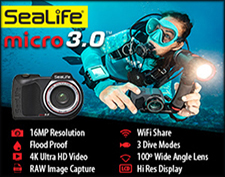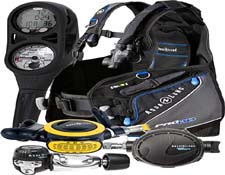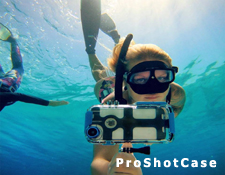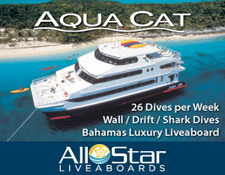Bahamas

Ours is a nation of islands and cays blessed with sunny skies, powder-white and pink- sand beaches and incredibly
clear aqua-blue waters. These constitute The Islands of The Bahamas which lie scattered across 100,000 square
miles of the southwest Atlantic Ocean, from the tip of Florida to the edge of the Caribbean near Haiti.
Some, such as Eleuthera and Andros, are quite large, while others are small enough for two people to reach by boat
and find themselves delightfully alone on an uninhabited island in paradise.
We invite you to share in these riches, guaranteed to soothe your body and restore your soul. We offer you the calm
and excitement of water sports - whether beneath the surface or at water's edge. And when you've had your fill of
swimming, boating, fishing, diving and more, we have championship golf and tennis, and many other ways to entice
you on land.
We have the dazzle and glitter of cabarets and casinos; we have the peace and quiet of a tiny cay rarely visited by
man. And whether you spend the days parasailing and snorkeling or just nurturing a suntan, our star-studded
Bahamian nights are undeniably romantic, no matter how you decide to spend them.
While all our sunny islands share sun-swept beaches and magnificent waters, some are action-oriented, others are
informal and relaxed - each offering a unique combination of features all its own. Vacation on the one that suits you
best, but remember, that whichever golden island you choose, you'll be only a short hop from another of our captivating
islands.
Geography
Located in the lower left-hand corner of the Atlantic Ocean is a 70,000-square-mile area of shoals and banks, where
the waters are warm and clear. These are the Bahama Banks... and out of them rise more than 700 islands and islets
covered with greenery and blossoms fringed with inviting beaches. This is The Bahamas.
The islands are strewn in a generally northwest-southeast array, along a 750-mile stretch from just off Florida, to just
off Haiti. Some of the islands are relatively large - Abaco, Andros, Cat Island, Eleuthera, Grand Bahama and Long
Island, for example. Many are tiny enough to provide a romantic hideaway for two people, with a picnic lunch tucked
into their small sailing vessel for an all-day rendezvous away from the world.
The Islands of The Bahamas are low-lying. Cat Island's Mount Alvernia, just over 200-feet above sea level, is the
highest point in the nation. Sometimes the water is so shallow you can wade from one island to its neighbour. But
there are also passes and cuts that range much deeper. Between Andros and the Exumas, the Tongue of the Ocean
suddenly plunges down more than five miles.
Climate
The Islands of The Bahamas enjoy the idyllic climate most people associated with tropic seas. The temperatures
seldom drop below 60 degrees (F), or rise above 90 degrees (F). Most of the rain comes in brief summer showers. The
surrounding sea normally ranges from the low 80's in the summer, to about 74 degrees (F) in midwinter.
People
The largest concentration of Bahamians dwell on New Providence Island, site of Nassau, the capital. Some families
have been Bahamian for more than two centuries. They can claim descent from early English colonists, loyalists who
fled North America during the American Revolution, and Southerners, who came during and after the American Civil
War. With the colonists, loyalists and transplanted southerners came their slaves, who worked the early plantations.
After Emancipation in 1834, they became diligent farmers and seamen.
Government
With the gaining of independence in 1973 and the adoption of a new Constitution, The Bahamas became part of the
Commonwealth of Nations. The British Monarch is our sovereign and appoints the Governor General. In the British
tradition, The Bahamas has a two-house Parliament, a ministerial Cabinet headed by the Prime Minister and an
independent judiciary.
History
Authorities believe the Arawak Indians moved up from the Caribbean into The Bahamas about the turn of the Ninth
Century. These were the native people Christopher Columbus first met when he landed here October 12, 1492, when
he planted the Spanish flag in the Bahamian soil of one of the islands and named it San Salvador. Columbus sailed on.
The history of today's Bahamas begins with the arrival of the Eleutheran Adventurers who founded a colony on the
island of Eleuthera. The Bahamas also became a home base for pirateers, who found the country suitable because of
its many islets, cays and complex shoals and channels, all which provided adequate hiding places from which the
Buccaneers could dash out to sea, attack a Spanish treasure ship and cargo vessels and return to the hiding places
with their loot.
With the American Revolution and the War Between States, the colonists came. First were the Loyalists who left the
United States out of faithfulness to their king. Then came Southerners, often with the slaves, who did not wish to live
under the victorious Union.
Americans again took note of The Bahamas during the years of Prohibition, when speedy rum-runners paraded the
waters between the Islands and the southeastern United States.
During World War II, The Bahamas served as an air and sea way-station in the Atlantic. Since then, the islands have
found a new and flourishing role as one of the world's most favoured year-round tourist playgroundS.
Language & Culture
Our language is English, generally intertwined with a special Bahamian dialect. Some Indian words have maintained
their use. For example: cassava and guava.
Many aspects of daily life, including the music, suggests a strong religious background and way of life. Music carries
echos of African rhythms, Caribbean Calypso, English folk songs, and our own Goombay beat.
Customs Regulations
Customs Duty - Baggage declaration by temporary visitors is oral, but the baggage is subject to Customs inspections.
In case there are dutiable articles, the visitor will be required to complete a Baggage Declaration Form.
Each adult is allowed 50 cigars or 200 cigarettes or one pound of tobacco and one quart of spirits free of Customs
Duty, in addition to personal effects. In addition, purchases up to a value of one hundred dollars ($100.00) are
permitted by all arriving passengers.
Household effects, such as china, furniture, linens and appliances are dutiable. All new purchases should be
accompanied by valid certificate invoices and used household effects are subject to assessment by Customs Officers.
Customs Departure - Duty Free Allowance - United States residents, including minors may take home duty-free
purchases up to $600 in retail value, if they have been out of the United States more than 48 hours, and have not taken
the exemption in 30 days. The exemption may include up to one US quart (32 US oz.) of liquor per person over 21. A
family may pool exemptions (if living in the same house).
animals, birds, certain articles derived from rare species; e.g. ivory, reptile leather, and all goods made from it. No
animal can be landed unless the owners have in their possession a valid rabies licence by the British Government
department.
Health
Yellow -Fever - a Yellow Fever vaccination certificate is required from travellers over 1 year of age coming from infected
areas. Travellers arriving in The Bahamas within seven days from the following countries are required to have a valid
certificate of vaccination against Yellow Fever: Burkina Faso, Gambia, Ghana, Nigeria, Sudan, Zaire, Bolivia, Brazil,
Colombia and Peru.
Departure Tax
Each adult leaving The Bahamas must pay B$15 departure tax. Children under the age of 6 years are exempt. Visitors
departing from Nassau and Freeport International Airports for most United States destinations, clear US Customs prior
to departure. No further US Customs formalities are required on arrival in the US. European passengers clear customs
upon arrival at their destination, i.e., Luxembourg, Frankfurt, London, etc.).
Passports & Visas
British Subjects from the United Kingdom and colonies and Canadian citizens may enter The Bahamas as vistors
without passports or visas, for periods not exceeding three weeks. For longer stays, passports are required.
United States citizens travelling on regularly scheduled airlines are pre-cleared through US Customs and Immigration
at Nassau International Airport. Proof of citizenship is required.
Transit without visas is allowed to nationals of the Dominican Republic. Citizens of the following countries require
passports but no visas: Belgium, Greece, Iceland, Italy, Lichtenstien, Luxembourg, Netherlands, Norway, San Marino,
Switzerland and Turkey. Citizens of the following countries require passports, but no visas for stays of three months or
less: Austria, Denmark, France, the Federal Republic of Germany, Finland, the Republic of Ireland, Israel, the Republic
of Korea, Portugal, Spain and Sweden. For longer stays, visas are required.
Citizens of the following countries require passports, but no visas for stays not exceeding 14 days: Argentina, Bolivia,
Chile, Costa Rica, Ecuador, Guatemala, South Africa,Republic of Honduras, Mexico, Nicaragua, Panama, Paraguay,
Peru, El Salvador, Uruguay, and Venezuela. For longer stays, visas are required.
Citizens of the following countries require passaports and visas to enter The Bahamas for any purpose: Dominican
Republic (except in transit), Haiti, and all Communist countries. Nationals of all other countries are asked to check
entry requirements with the Immigration Department, P. O. Box N-831, Nassau, The Bahamas. Tel. (242) 322-7530.
Car Rentals
Cars can be rented from Nassau International Airport or from downtown. Driving is on the left in The Bahamas. A visitor
may drive on his/her home licence for up to three (3) months. Bahamians or visitors may apply for an international
licence at a cost of $50.
Zoned Taxi Fares
Airport to Cable Beach $12; Airport to downtown $18; Airport to Paradise Island $21 (does not include $2 for bridge
toll); Cable Beach to downtown $8; taxi fares are fixed by the government of The Bahamas at $2 for the first 1/4 mile
and 30 cents for each additional 1/4 mile.
Jitney/Bus Pick-up
The jitney buses run throughout the day normally until dusk. In a westerly direction they depart from the corner
between British Colonial Best Western on Bay Street. In an easterly direction from Frederick Street, downtown. If
you're not sure of the bus route that you are taking, feel free to ask the driver. Bus fares - Adults 75 cents and children
50 cents.
Scooters
Rentals are possible from most hotels. Prices: $28 - $32, including insurance. Call 326-8329 or 327-6000
ext. 6374 for information on scooters.
Mailboats
Mailboats travel to the Islands weekly. Passengers may rent a cabin for the journey. Contact the
Dockmaster's Office at telephone (242) 393-1064.
Telephone
Telephone service on all the islands is controlled by the Bahamas Telecommunications Corporation, an
agency of the Government. Direct Distance Dialing services are available between North America, Europe, United
Kingdom, other countries and The Bahamas (Nassau and most of the Family Islands). Cables to The Bahamas are
usually delivered by phone or by citizen's band radio.
Postal Service
The Bahamas Postal Department offers first class, second class letters services as well as
postcards, air letters and high-speed mail between the United States, Canada, United Kingdom, South and Central
America, Bermuda, Falkland Islands and Islands of the Mediteranean, Africa, Asia, Australia, Pacific and Indian
Oceans, the West Indies and within the Bahama Islands.
Airmail
Postcards to the United States, the U.K. & Canada require a 40 cents stamp. Airmal letters cost 55 cents
per half ounce to the US & Canada, 60 cents for Europe.
Weddings
Should non-residents wish to be married in The Bahamas, both parties must spend 15 days in the
country and submit proof of presence. The Registrar may use his/her discretion and may allow the parties to marry
provided they can prove their stay in The Bahamas for a minimum of 3 days. If either party has been divorced, proof of
divorce must be produced. Applications for marriage licences cost $40.00 and are obtainable in New Providence at the
Registrar General's Office, Rodney E. Bain Building, Parliament Street. No blood test is required. Minimum age
without parental consent is 18 years. For further information call: (242) 326-5371,328-7810, 326-9772.
Taxes & Tolls
Departure tax leaving The Bahamas is $15 payable at the airports.
There is a Government tax of 4% and a Resort Levy of 4% along with a Maid Service Charge levied on all hotel rooms
in The Bahamas.
Paradise Island Bridge Toll is $2 for rental cars and taxis, 25 cents for bicycles. Pedestrians free.
Tipping Standard tip is 15%. Many resorts and hotels automatically add a service charge to cover gratituities. Ask
your waitress if you are unsure whether this charge has been added to your bill.

|


























